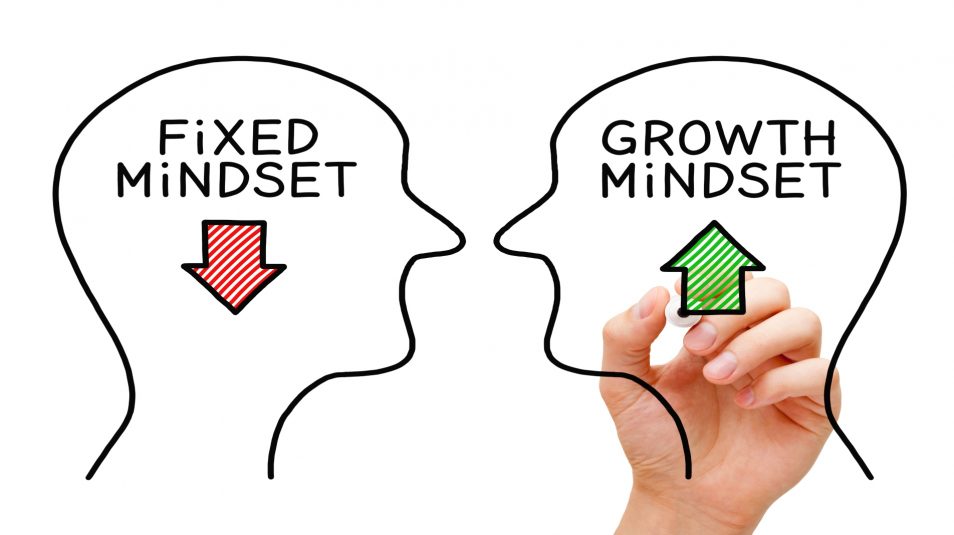Choose growth

Personal Development
November 10, 2020
Jane Perdue
Executive Director, The Jane Group
Topics
growing, Growth, Growth Mindset, leadership growth, Learning, Mindset, Open Mindset, personal development, resilient, vulnerableI was 18 when my dad passed away. In that too short but precious time, he imparted many lessons that continue to guide me today.
As the oldest of three daughters, I became the de facto son, joining my dad in doing repairs, tinkering, and building stuff. He taught me how to use tools, repurpose materials, and employ the magic of duct tape.
When something wasn’t working, Dad would say, “Use your head. We can figure this out.” That’s when we’d let go of whatever we’d been doing and start trying new things. That inventiveness was sometimes fun, sometimes frustrating, but productive. We always figured it out.
Little did I realize it at the time, but Dad demonstrating his willingness to let go of what he thought the solution was and to try other things was an invaluable gift. His hammers, screwdrivers, and pieces of wood showed me the power of choosing a growth mindset in lieu of settling for a fixed one.
(Had he lived long enough for me to tell him that people wrote books and taught classes about fixed and growth mindsets, I suspect he would have chuckled and said something about common sense.)
Mindsets are important. Mindset.com defines them as the “collection of beliefs and thoughts that make up the mental attitude, inclination, habit, or disposition that predetermines a person’s interpretations and responses to events, circumstances, and situations.” In short, our mindset is how we choose to feel, think, and act about an object, person, issue, or event.
Carol Dweck, a psychologist and Stanford University professor, is known for her work on the mindset psychological trait. She divided mindsets into two categories—fixed and growth—and defined them this way:
“In a fixed mindset, people believe their basic qualities, like their intelligence or talent, are simply fixed traits. They spend their time documenting their intelligence or talent instead of developing them. They also believe that talent alone creates success—without effort.”
“In a growth mindset, people believe that their most basic abilities can be developed through dedication and hard work—brains and talent are just the starting point. This view creates a love of learning and a resilience that is essential for great accomplishment.”
“When you enter a mindset, you enter a new world. In one world—the world of fixed traits—success is about proving you’re smart or talented. Validating yourself. In the other—the world of changing qualities—it’s about stretching yourself to learn something new. Developing yourself.”
Falling into a fixed mindset can sneak up on us and become a daily companion that influences our thoughts, feelings, and actions either in a positive or negative way.
Wondering if your mindset is fixed? To help you make an assessment, look over this list of actions and behaviors associated with a fixed mindset.
- Look for someone to blame when things go wrong.
- Feel anxious when faced with a challenge.
- Hunger for approval.
- Hear a voice in your head that warns you away from something, someone, etc., new or different.
- Get stuck in or-thinking, e.g., either being a winner or a loser, either being right or wrong, etc.
- Look for an excuse to explain away inability to do something.
- See delivering tangible results as the only possible outcome.
- Believe you have to repeatedly prove yourself.
- Get defensive or angry when criticized.
- Think effort is fruitless, i.e., either you can automatically do something or you can’t.
- Reject trying something because “it’s not your thing.”
- Feel jealous of someone whose talents exceed yours.
- Stay silent because of fear of appearing stupid.
- Think that someone has no idea what they’re talking about when they’re presenting an alternate point of view.
- Choose to be around people who boost your self-esteem versus those who challenge your thinking.
See anything that looks familiar?
Fixed mindsets can feel comfortable yet are limiting; growth mindsets unleash our potential.
“You will either step forward into growth, or you will step backward into safety.” ~Abraham Maslow, psychologist
Approaching life, love, and leadership with a growth mindset is something we have to want to do. Choosing to see opportunity and possibility requires dedicated effort and tapping into our emotional intelligence to monitor how we think, feel, and act as well as how our thoughts, feelings, and actions impact others.
To choose growth, we need to:
- Be self-aware, not mindless.
- Be curious, not indifferent.
- Be willing to fail.
- Be persistent, not unassertive.
- Be resilient, not defeatist.
- Be inspired by others.
- Be vulnerable, not insensitive.
- Own your attitude.
- Be willing to learn and improve.
- Embrace imperfection.
Thanks, Dad, for pointing me in the growth direction.
“Aim for success, not perfection. Never give up your right to be wrong, because then you will lose the ability to learn new things and move forward with your life. Remember that fear always lurks behind perfectionism.” ~David D. Burns, psychiatrist, professor, and author




